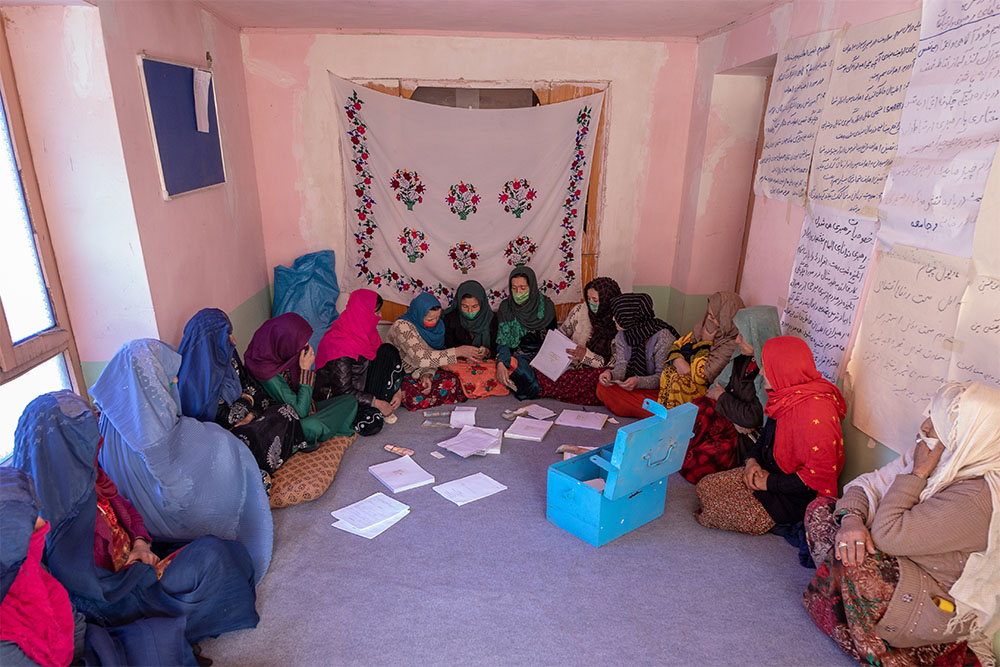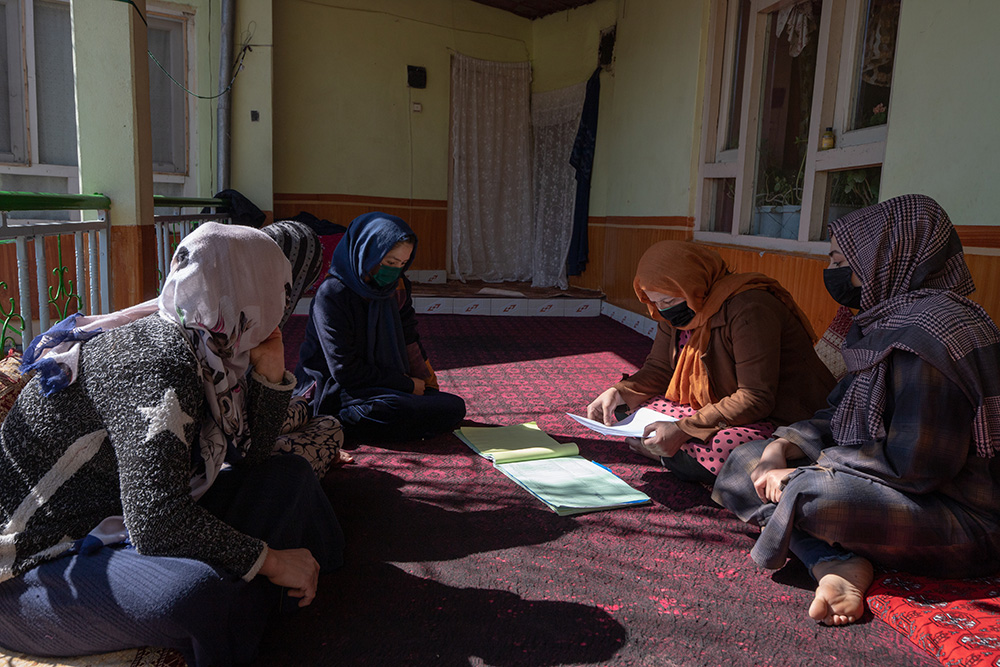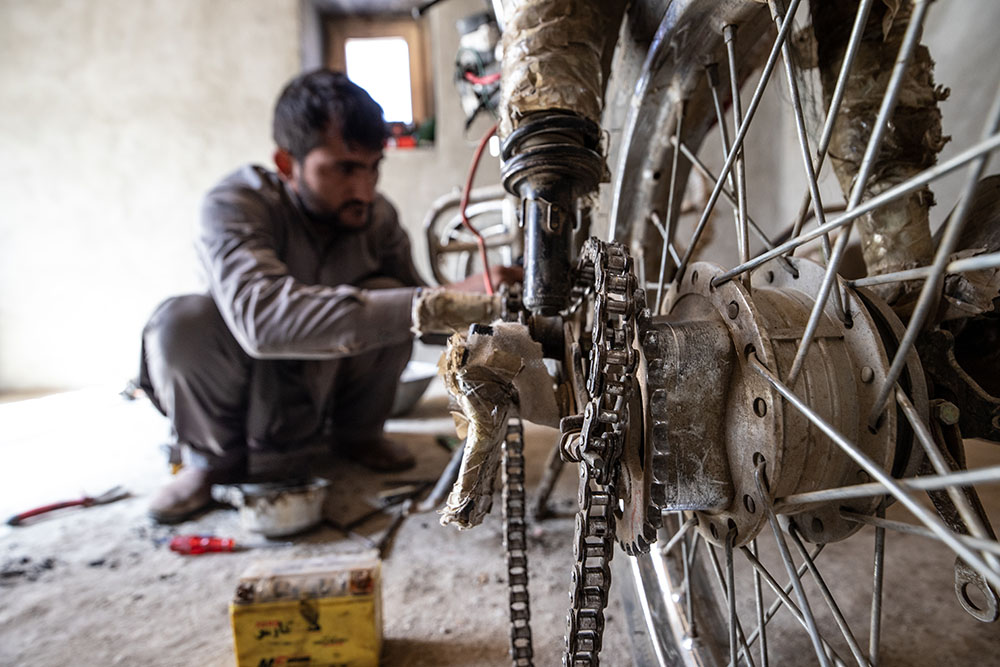Small businesses are the backbone of a thriving economy. They create jobs, stimulate innovation and production, and attract new investors in a healthy cycle of growth. But financiers and entrepreneurs need to feel confident they can manage the risks that come with operating in a fragile business environment.
Building on Aga Khan Foundation’s history of supporting the people of Afghanistan, the Empowering Microfinance & Enterprises for Resilience and Growth (EMERG(e)) project, aims to revitalize the country’s microfinance sector and promote the inclusion of small business owners, with a focus on women and women-led businesses, strengthening both sides of the balance sheet.
Financed by a $16 million grant from the World Bank’s Afghanistan Resilience Trust Fund (ARTF), the project will be administered by AKF and the Afghan Credit Guarantee Foundation (ACGF) in 15 provinces.
At the project implementation readiness meeting on May 29 in Kabul, partners and representatives from across the microfinance sector underscored their commitment to enhance the capacity and sustainability of the private sector in Afghanistan.

Rahmatullah Mahmoudi (in blue) is an entrepreneur based in Kabul. With financing from First Microfinance Bank Afghanistan (FMFB-A) he has been able to purchase supplies for his business and increase sales and revenue.
“Microfinance is an important avenue to improve livelihoods in Afghanistan, particularly for women. EMERG(e) will bolster the microfinance sector, supporting the capabilities of small business owners, especially job-creating enterprises, so they can access credit to start or rebuild their businesses, while revitalizing the private lending sector.”
—Melinda Good, World Bank Country Director for Afghanistan
Microfinance has always played an outsized role in the Afghan economy, especially for women entrepreneurs, farmers and the self-employed. Across the country there are about 84,000 active microfinance clients of which 42% are women.
But these clients face huge barriers when they want to grow their businesses. Traditional banks see them as too small or risky because they lack collateral and credit histories.
EMERG(e) will create new linkages. Promising clients will benefit from business development services to improve their business acumen, creditworthiness, and appeal in the eyes of microfinance providers.
A Credit Viability Fund will make it easier for eligible businesses, especially those led by women, to access formal banking with products designed to create market-based buffers for both credit providers and clients from the biggest risks.
“EMERG(e) represents a continuation of AKF’s commitment to Afghanistan where we have supported private sector growth across the spectrum at the grassroots medium and macro levels. This partnership brings together the private sector and microfinance providers to create a pipeline of bankable businesses among underserved communities to foster an equitable and resilient society in challenging times,”
—Najmuddin Najm, Aga Khan Foundation Afghanistan, Chief Executive Officer
EMERG(e) draws on the insight and resources of two previous AKF projects: “Strengthening Women’s Economic Empowerment Project” (SWEEP) and “Women Economic Empowerment Rural Development Project,” whose 3,000 members will join a pool of more than 30,000 AGCF beneficiaries.

A community-based savings group (CBSG) in Takhar province, supported by AKF and the World Bank-funded SWEEP program. Members recently received loans of 20,000 Afghanis (about $280) each to start their own businesses. Savings groups comprise 10-20 members who deposit money each month from which they can borrow small sums for a variety of uses including medical emergencies, home improvement, to help set up a business or buy books for school. Sayed Habib Bidel/AKDN

An all-woman CBSG in Badakshan province, in northeast Afghanistan, also supported the SWEEP program. Sayed Habib Bidel/AKDN
These small and micro entrepreneurs, 40% of whom are women, will be offered affordable financing, technical support, and mentorship, and, when their businesses are ready to expand, formal financing.
At the same time, AKF will provide 500 small and medium enterprises with advanced business management and entrepreneurship training. It is expected that about 200 of these businesses, with the potential to create new jobs, especially for women, will be eligible for subsidized financing through the Credit Viability Fund.
Overall, EMERG(e) will reach an estimated 35,500 businesses and impact the lives and livelihoods of 250,000 individuals.

Khudadad runs a motorcycle repair shop, which he set up using an AKF loan and professional training. Sayed Habib Bidel/AKDN

Now, he doesn’t have to emigrate to find work, which helps both him and his community, which can now benefit from his skills. Sayed Habib Bidel/AKDN
For microfinance providers struggling with a lack of liquidity and unpaid debt, EMERG(e) will help restore their balance sheets and build their capacity to provide much needed financing to small businesses. This intervention is designed to help get the microfinance providers in Afghanistan on the road to recovery and eventual sustainability.
In stabilizing microfinance providers, the project will restore trust among partners looking for new investment opportunities and contribute to the long-term vitality of the sector.
EMERG(e) would not be possible without the broad support of microfinance community including, Oxus Bank, Muttahid, Microfinance Investment Support Facility (MISF) Afghanistan, First Microfinance Bank (FMFB) Afghanistan as well as the International Finance Corporation (IFC)’s Darya initiative. EMERG(e) also builds on synergies with similar programs of the EU and UNDP – creating an ecosystem development approach.